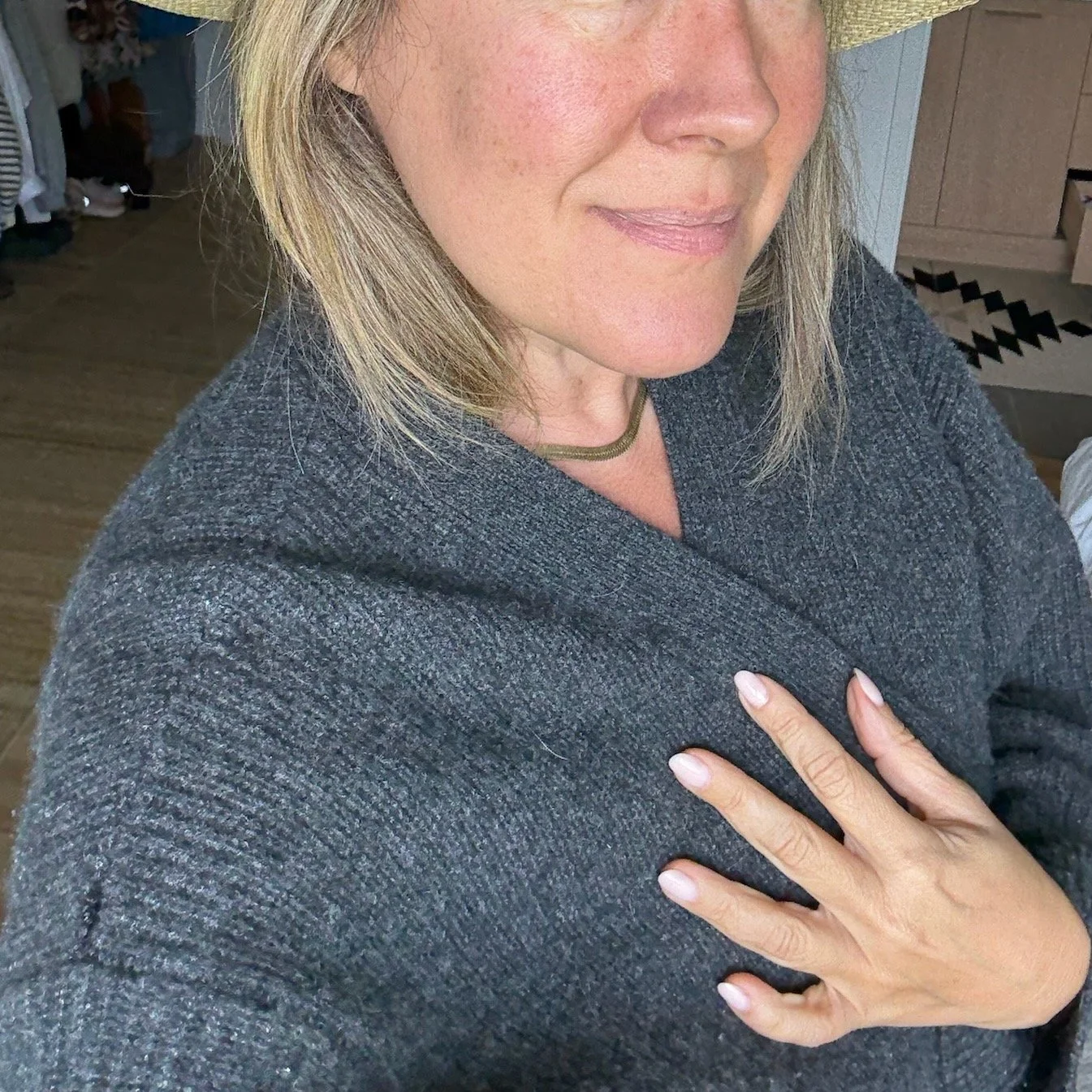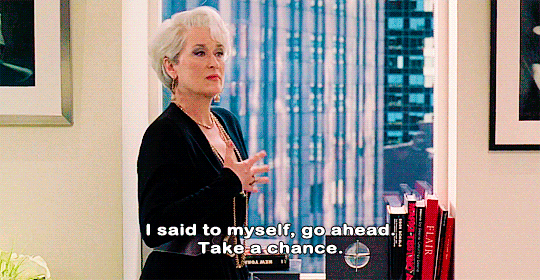This Career Trick Might Be the Secret to Landing Your Dream Job
by Lynn Maleh
Because you’re a human on the internet, there’s a high chance you enjoy a personality quiz, so here’s a quick one to assess your current job satisfaction:
Why do you dislike your job?
a. Because UGH I have to get up before 10am, my boss is an idiot, they expect me to… do things, and why don’t I just live on a beach in Tahiti?
b. The existential dread that looms over me like a dark, mysterious cloud in a sci-fi novel
If you answered A, then you dislike your job for the right reasons. If you answered B, you–like 51% of Americans–are not very satisfied with your job and probably need a refresh.
Of course, when your finances, health insurance, and past decade or so of experience are all tied up in your current job, making any kind of change can feel….impossible.
But if you’re fully ready for a new beginning but kind of need a push for where to even start, here’s one trick that might just be the secret to getting out of the job you just ended up in and into the job you actually want.
Heard of an informational interview? It’s something you 100% need to know about.
An informational interview shouldn’t be confused with a job interview. Think of it as an informal meeting you set up–not to get a job–but to learn more about a potential position, industry, or company.
For example, if you’re thinking about getting into graphic design, you might want to set up an informational interview with the creative director at a design agency, a designer at a company you’re interested in, and a freelancer. The point isn’t to get a job from any of these people, but to learn about the day-to-day of their positions, if their world really is a fit for your goals, and if so, what steps you need to take to get there.
You may realize the uncertainty of freelancing isn’t for you, but the fast pace of an agency is. Or maybe you’ll see that you’re still missing some necessary skills and should take some classes before moving any further. Or–best case scenario–a job will open up down the road, and one of those people will remember the great conversation they had with you and circle back.
Tbh, you pretty much can’t argue with the benefits of informational interviews.
UC Berkeley has an entire page dedicated to the power of informational interviewing in the job search process.
According to them, benefits of informational interviews include:
Gaining insider info about your desired role, company, or industry–you know, the juicy stuff you can’t always find on Glassdoor.
Discovering new opportunities within the career-sphere you’re searching. For example, you may be thinking about graphic design, but an informational interview might lead you to consider “photo editing,” “asset coordination,” or “project management” instead.
Demystifying the steps to get from where you are to where you want to be.
Getting the scoop on specific companies and organizations. Remember: not all job postings are listed, and by the time many of them are, they’re already filled.
Creating a larger professional network that could *maybe* *possibly* *hopefully* lead to your future dream job.
In case you’re thinking of self-sabotaging by assuming no one wants to hear from you, here’s some seriously solid advice from the careers team at UC Berkeley: “You may feel awkward reaching out to people you don't know. However, most people actually enjoy taking a few moments out of their day to reflect on their professional life and give advice to someone with an interest in their field.”
How to find the right person to schedule an interview with, so you don’t come off as a grimey car salesperson.
To avoid the “ick” factor, Flexjobs Chief executive and Founder Sara Sutton Fell recommends reaching out to people you already have a connection with. “Family, friends, former colleagues and/or current colleagues,” she says. “Then, in these ‘low level’ interviews, you can ask the person you're speaking with if they have anyone else they wouldn't mind connecting you with for further exploration and information.”
In addition to friends and family, you can find possible interview sources via:
LinkedIn or other professional online networks
Alumni groups
Recruiters
Members of professional organizations you belong to
Social media
What to do during the interview (hint: don’t be a stress monster).
First of all, chill. It’s not a real interview, and the more casual you are about it, the more it won’t feel like one for you or the person you’re interviewing. That said, you should be prepared, so everyone’s time is used most productively.
A few tips for informational interviewing from Harvard Business Review:
1. Do your research.
Know who you’re talking to, what they do, the industry lingo, and the answers to any questions that could already be Googled. The goal of the interviews is to shine bright and be memorable, so showing up with a certain level of credibility and confidence is key.
2. Limit the “YOU” part of the conversation.
The point of this interview is for you to gather information, so don’t waste time reciting your resume. Prepare a three minute MAX elevator pitch about yourself, then move on to getting the information you need.
3. Ask questions like a journalist.
Be curious, without being pushy. Ask questions that get to the point, but inspire unique or interesting tangents.
John Lees, author of The Success Code offers five powerful questions you can ask based on Daniel Porot’s “Pie Method”:
How did you get where you are today?
What do you enjoy most about your job?
What are some of the top challenges?
How is the industry changing?
What type of people succeed in this field of work?
The more informational interviews you do, the more you’ll be able to adapt these questions to gather the information you specifically need.
4. Be endlessly grateful:
Don’t ask for any favors from the people you interview (right away at least). They’ve already paid their dues by meeting with you.
After the interview, send a thank you email, or better yet, a physical card or small gift. Showing someone how much you value their time says a lot about who you are as a professional.
Whether you’re looking for a full time job, side hustle, or complete career overhaul, an informational interview can lead you in the right direction. Remember: it’s a long game, so even if you’re not moving mountains right away, know you’re at least practicing to be totally brilliant at your next real job interview.
Lynn Maleh is a Syrian-American writer and comedian based in Los Angeles. By day, she writes online content, and by night she performs standup. See more of her articles here.









